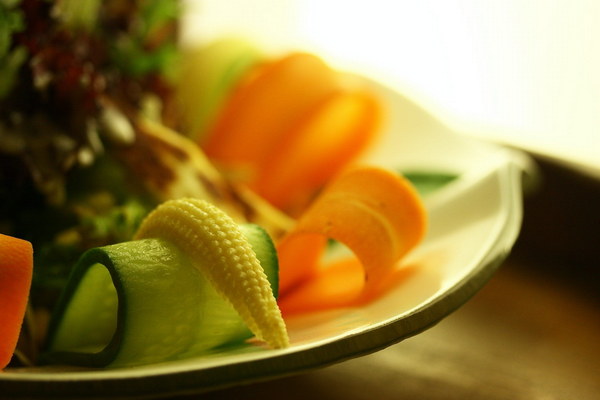Nurturing Your Liver and Kidneys A Comprehensive Guide to Traditional Practices and Modern Tips
Introduction:
The liver and kidneys are two vital organs in the human body that play crucial roles in maintaining overall health. The liver is responsible for detoxifying the blood and metabolizing nutrients, while the kidneys filter waste products from the blood and regulate fluid balance. Nurturing these organs is essential for preventing various health issues and improving overall well-being. In this article, we will explore both traditional and modern practices to help you maintain healthy liver and kidney function.
1. Traditional Practices:
a) Diet:
A balanced diet rich in fruits, vegetables, whole grains, lean proteins, and healthy fats is beneficial for both the liver and kidneys. Some specific foods that can aid in liver and kidney health include:
- Berries: rich in antioxidants, which help protect the liver from oxidative stress.
- Garlic: believed to have detoxifying properties.
- Turmeric: contains curcumin, which may help reduce inflammation in the kidneys.
- Green leafy vegetables: high in vitamins and minerals that support liver and kidney function.
b) Herbs and Supplements:
Traditional herbs and supplements can support liver and kidney health. Some popular options include:
- Milk thistle: known for its liver-protecting properties.
- Dandelion root: aids in kidney function and helps with detoxification.
- N-acetyl cysteine (NAC): a supplement that supports liver detoxification.

c) Acupuncture:
Acupuncture, a traditional Chinese medicine practice, can help improve liver and kidney function by promoting the flow of energy (Qi) in the body. It may also reduce inflammation and pain.
2. Modern Practices:
a) Regular Exercise:
Engaging in regular physical activity helps improve blood circulation, which can enhance liver and kidney function. Aim for at least 150 minutes of moderate aerobic exercise or 75 minutes of vigorous exercise per week.
b) Adequate Hydration:
Drinking plenty of water is crucial for kidney function, as it helps flush out waste products and toxins. Aim for at least 8 to 10 glasses of water per day.
c) Limiting Alcohol and Smoking:
Excessive alcohol consumption and smoking can damage both the liver and kidneys. Limiting or avoiding these habits can significantly reduce the risk of organ damage.
d) Stress Management:
Stress can negatively impact liver and kidney function. Practice stress-reducing techniques such as meditation, yoga, or deep breathing exercises.
3. Regular Check-ups:
Regular health check-ups are essential for early detection and treatment of liver and kidney conditions. Ask your doctor about the frequency of liver function tests and kidney function tests, which can help monitor your organ health.
Conclusion:
Maintaining healthy liver and kidney function is vital for overall well-being. By incorporating both traditional and modern practices into your daily routine, you can significantly reduce the risk of organ damage and support optimal health. Remember to consult with a healthcare professional before making any significant changes to your diet, exercise, or supplement regimen.









